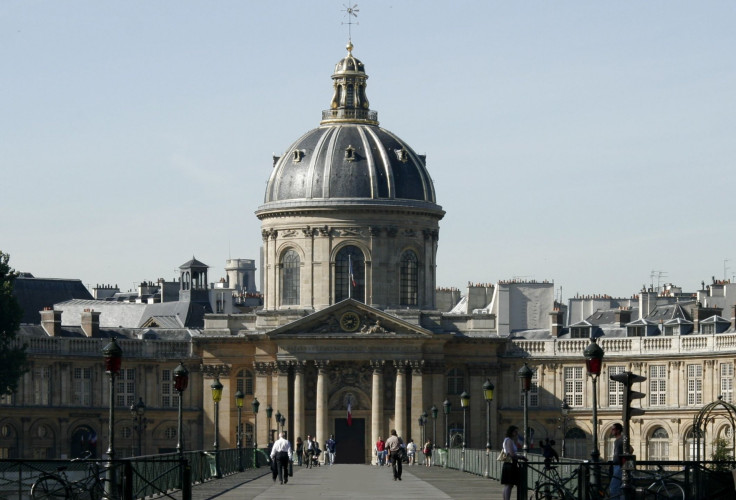Académie Francaise Names First British Member: Is This The End Of ‘Franglais’?

Michael Edwards has become the first British-born person ever elected to the Académie Française (French Academy), the prestigious body entrusted with protecting and maintaining the purity of the French language.
Edwards, 74, a poet and literary critic, made it on his third attempt to join the august Académie and will replace the recently deceased French poet and novelist Jean Dutourd.
The Barnes-born Edwards was a university professor in the UK prior to joining the Collège de France, the most prestigious higher education and research entity in France. He is an expert on the works of William Shakespeare, Jean Racine, Moliere and Arthur Rimbaud.
Married to a French woman, Barnes has dual British and French nationality.
The Connexion, an English-language French newspaper, reported that Edwards not only beat Jean-Noël Jeanneney, a former minister and president of Radio France, for the coveted seat on the Académie, but he was elected just in time: Three years ago, the organization imposed an upper age limit of 75 for new members.
Founded in 1635 by Cardinal Richelieu, the chief minister to King Louis XIII, the Académie monitors use of the French language and safeguards it from foreign impurities and typically comprises literary figures, philosophers, historians, scientists, politicians and even military and church officials. Prominent members have included such luminaries as Alexander Dumas, Louis Pasteur, Victor Hugo and François-Marie Arouet (better known as Voltaire).
The Académie is the oldest of the five academies of the Institut de France.
Under the organization’s rules, one does not have to be of French descent to be a member. Indeed, such figures as former Senegalese President Léopold Sédar Senghor, Franco-Lebanese author Amin Maalouf, Franco-Belgian writer and filmmaker François Weyergans, Chinese-born writer François Cheng and Algerian novelist and filmmaker Assia Djebar have been members of the Académie.
But Edwards is the very first Briton.
The body holds 40 members who are called immortels (immortals) since they hold their seats for life.
However, the body has been criticized for aggressively rejecting the use of English words like "weekend," "walkman," "software" and "email" from infiltrating the French language (although they are widely used due to the immense popularity of technology among French youth and the dominance of Anglo-American culture).
The concept of Franglais, in which English words and idioms have been inserted into daily French language use, is of grave concern to the Académie, which sees such incursions as tantamount to an attack on French identity.
Philippe Bertrand noted in Les Echos/Worldcrunch how an increasingly globalized economy has forced French politicians and businessmen to sprinkle English words into their oral and written communications.
“There is no area of French life where the phenomenon doesn’t make itself felt,” he wrote. “Thus does [giant retailer] Carrefour provide French cities, towns and villages with a Carrefour Market or a Carrefour City. Its competitor, Auchan, has christened its supermarkets Simply Market. ... Why does the Pimkie store in Boulogne-Billancourt stick posters in its windows advertising ‘good prices’? Why did the casino chain of retailers rename its Petit Casino stores Casino Shops?”
The Académie has even protested against the French government’s own plans to provide constitutional protections for regional languages in the country, like Alsatian, Basque, Catalan, Corsican and others.
As for the English language, given that it comprises words from various languages, including German, Latin, Norse (and, yes, even French), there is no English equivalent for the Académie Francaise.
© Copyright IBTimes 2025. All rights reserved.





















